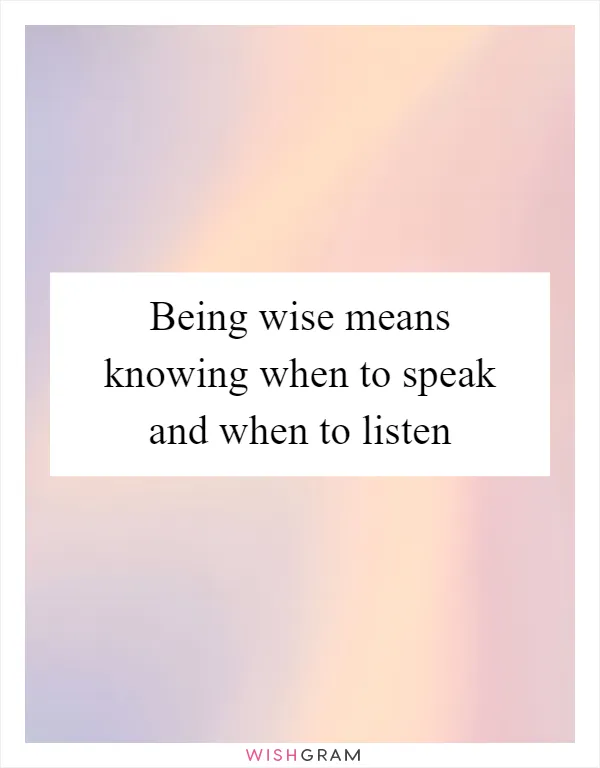Being wise means knowing when to speak and when to listen
Being wise means knowing when to speak and when to listen. It's about understanding the power of your words and recognizing that there are times when it's best to share your thoughts and times when it's better to hold your tongue. Wise people understand that communication is a two-way street and that listening is just as important as speaking.
When you are wise, you know that not every situation requires your input. Sometimes, staying silent and actively listening can provide more value than adding your voice to the conversation. By listening attentively, you gain a better understanding of the topic at hand and the perspectives of those around you. This allows you to gather more information, broaden your knowledge, and make more informed decisions. It also shows others that you value what they have to say and respect their opinions.
In contrast, speaking without taking the time to listen can lead to misunderstandings and missed opportunities. When you don't give others the chance to express themselves, you risk alienating them, shutting down communication, and hindering collaboration. Wise individuals understand that by taking a step back and truly listening to others, they can foster a deeper connection and create an environment of trust and mutual respect.
Knowing when to speak and when to listen also relates to emotional intelligence. Wise people have a heightened sense of self-awareness and empathy, allowing them to gauge the needs of a situation. They can discern when their input is necessary to provide guidance or share their expertise, and when it's better to be a supportive listener. By adapting their communication style based on the circumstances, they can enhance relationships, diffuse conflicts, and facilitate effective problem-solving.
It's important to note that being a good listener doesn't mean being passive or submissive. It's about being an active and engaged participant in a conversation. When you truly listen, you show genuine interest and concern for others. You ask thoughtful questions, seek clarification, and provide feedback that demonstrates you understand their perspective.
